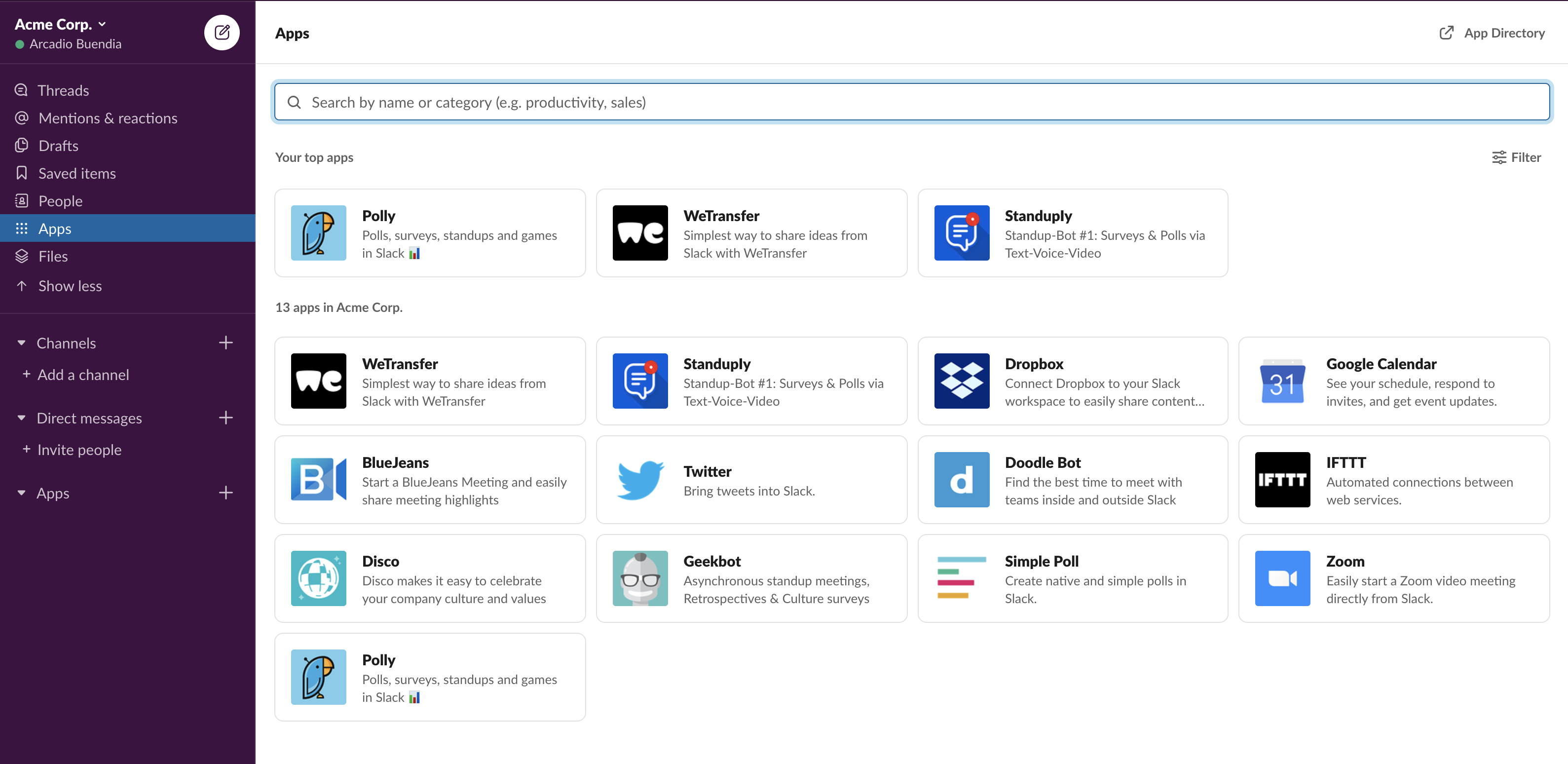
As a result, Slack bought both HipChat and Stride from Atlassian and migrated users to its platform. It raised even more money, bringing the valuation to $5.1 billion. In 2017, Slack launched enterprise grid, a new set of tools focused on bringing in lucrative corporate clients.
#SLACK DESKTOP APP FOR MAC SOFTWARE#
This came as both Facebook and Microsoft launched new workplace collaboration software to compete with Slack. In addition, it raised $200 million in funding, bringing the company valuation to over $3.8 billion. The next year, the platform exceeded 2.7 million daily active users, 800,000 of which were paid. In the same year, they hit 1.1 million users and got over $25 million on the revenue.

In 2015, Slack acquires Screenhero (YC W13) to add screen sharing and voice chat to its work messaging platform. In 2014, Slack raised $120 million, giving the company a whopping valuation of $1.12 billion and Slack became the fastest company in history to achieve a billion dollar valuation. The core team was drawn from the founders of Flickr, leveraging their Silicon Valley network to build out the new venture. They renamed their company Slack Technologies, and began to market their new product. The tool was called Slack, and it soon became the focus of the company after developers saw the potential. In the first 24 hours of its launch, 8,000 companies signed up for Slack in 2013. So they created one! Through this, Slack was born.


In 2011, Tiny Speck was developing the online game ‘‘Glitch’’ and found that there wasn’t a team collaboration tool on the market that met their needs. Slack was originally developed as a solution to a problem for game developers. While Slack’s track record is interesting, it is background history of Slack – and how the suite of tools offered by Slack – that makes the story so interesting. Slack has the primary form of workplace communication to many organisations, reducing the email traffic and connecting remote team. With its instant messaging convenience, Slack is designed to keep your attention within its confines, which sometimes comes at the expense of actually getting any work done. “I Slacked you” may still be a confusing phrase to many, but not for long.


 0 kommentar(er)
0 kommentar(er)
